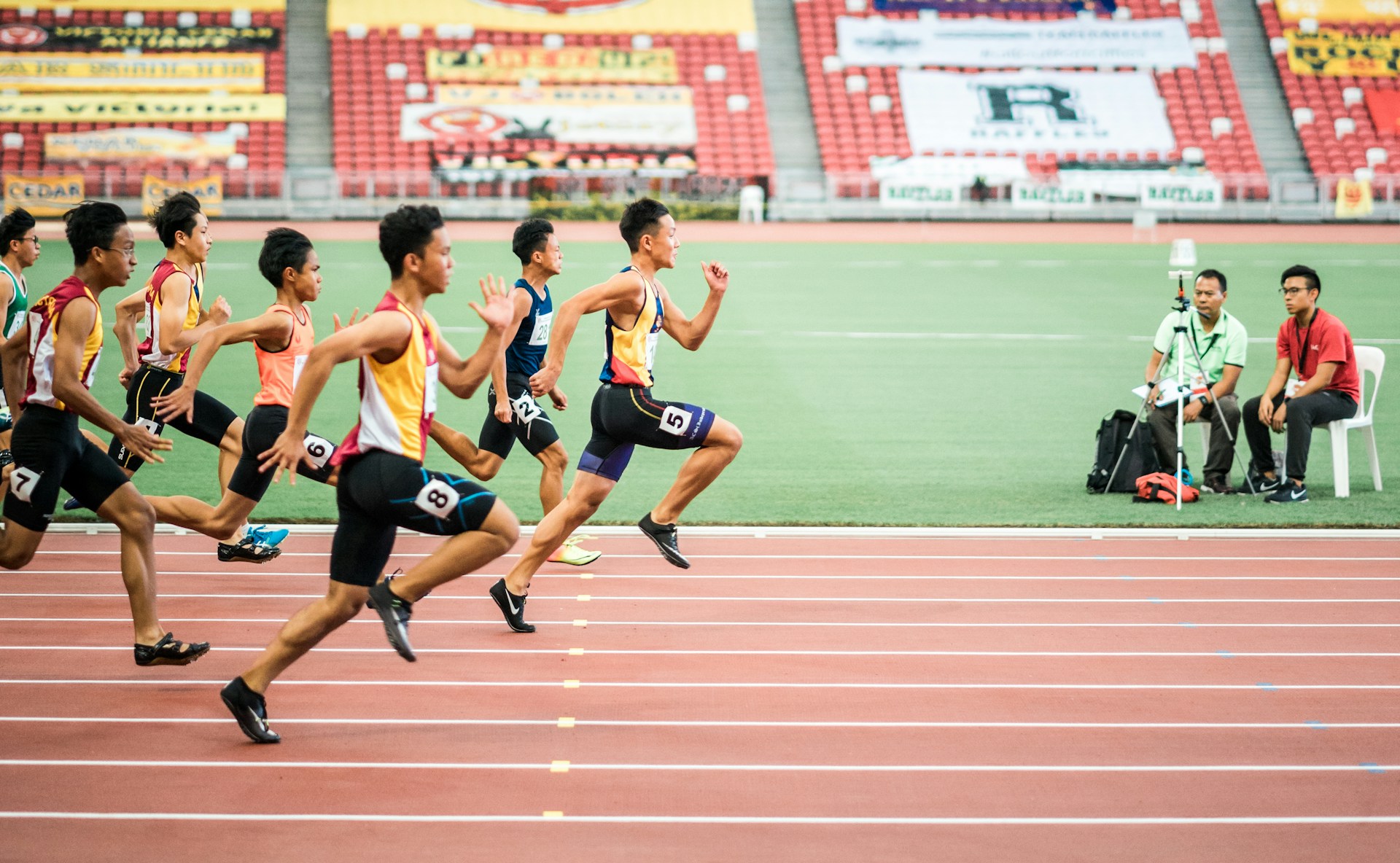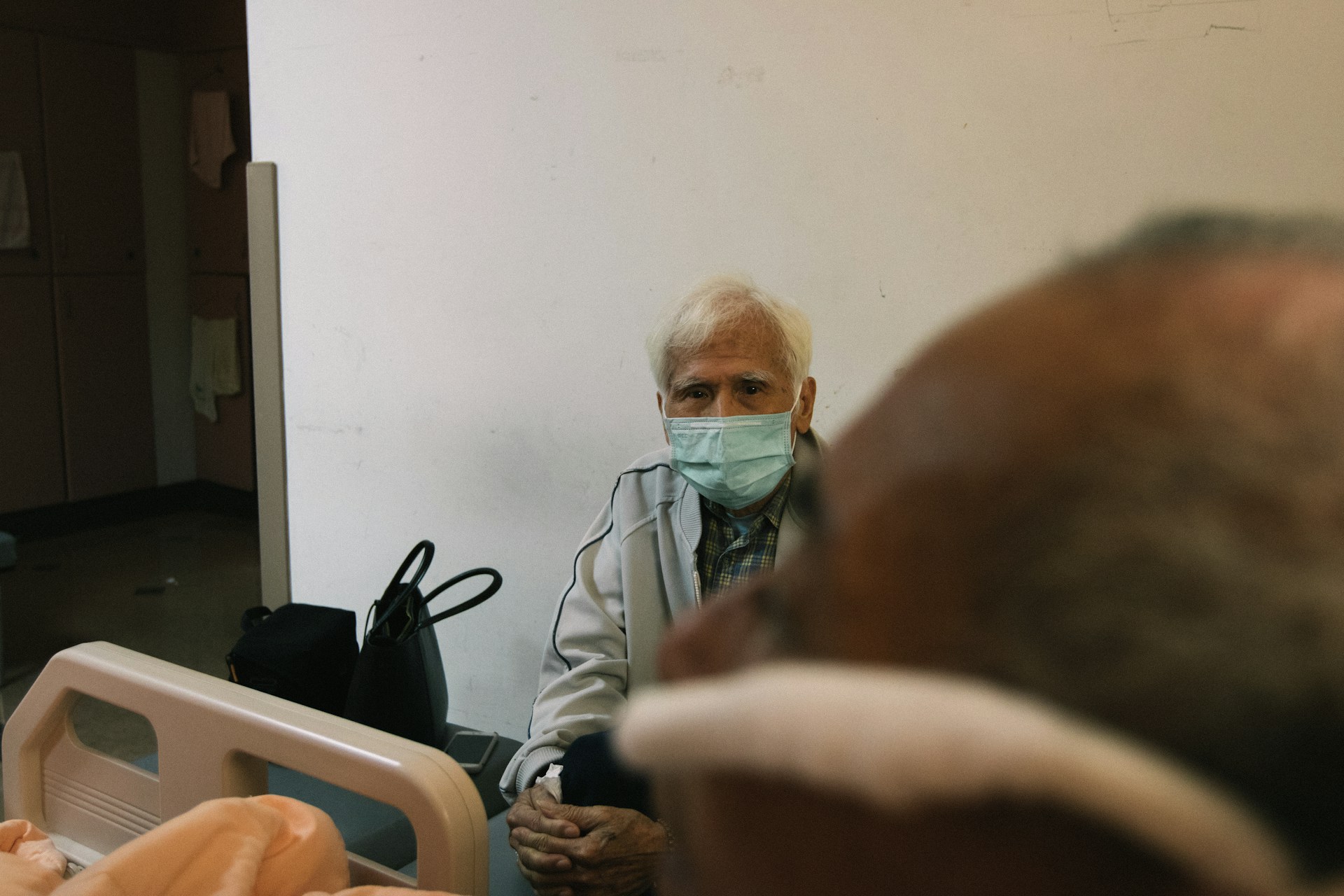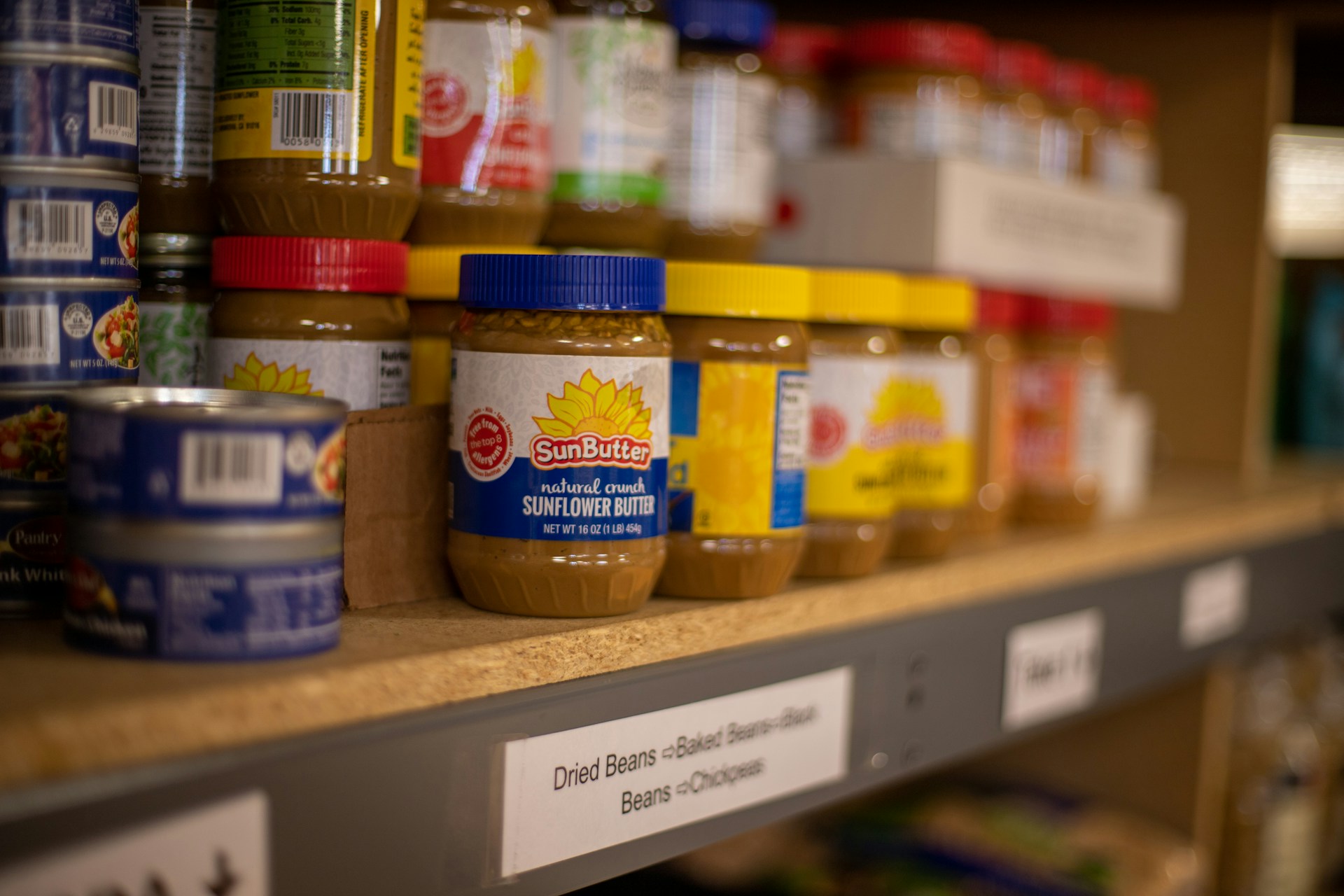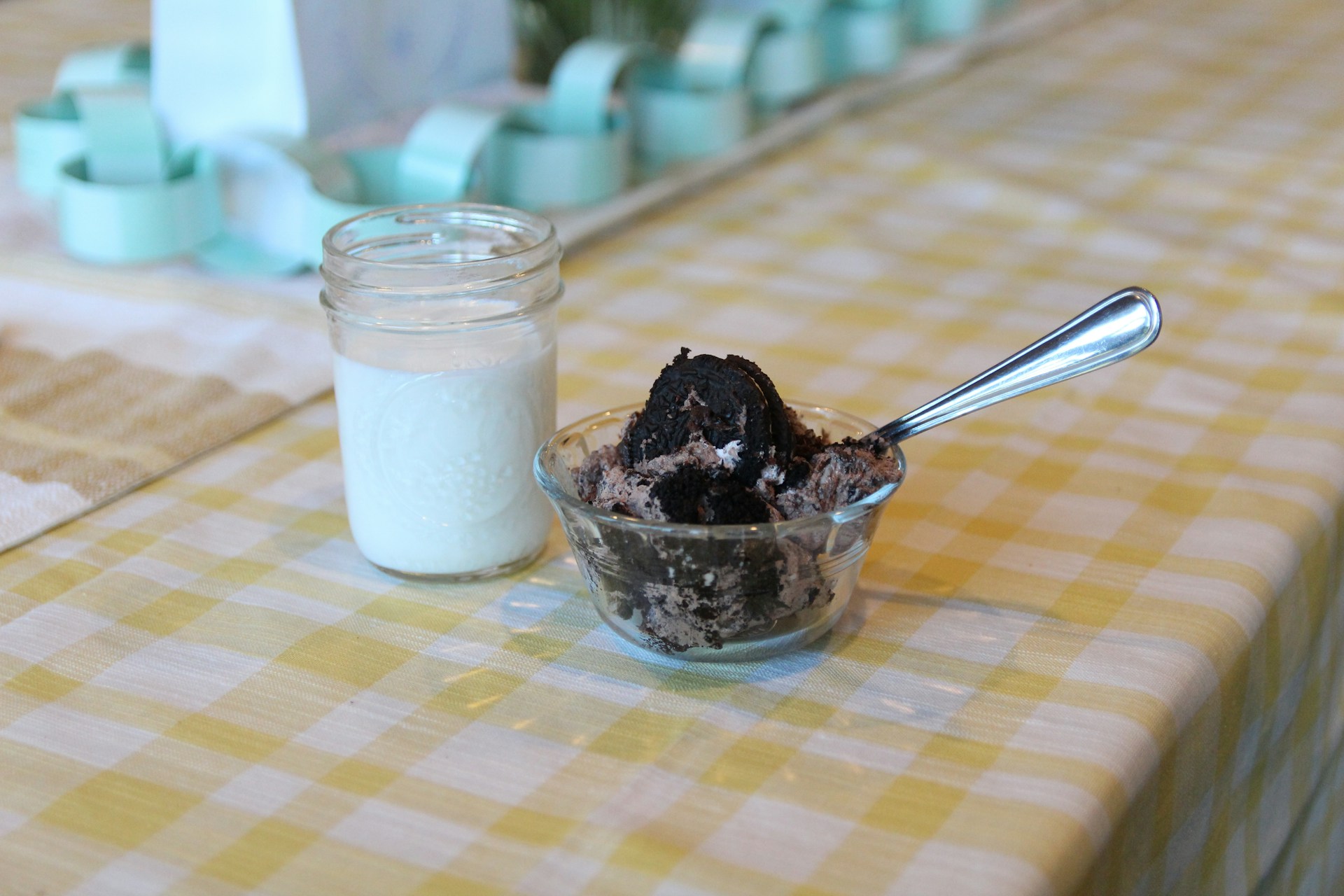Hubungan Emotional Eating dan Kualitas Diet dengan Kenaikan Berat Badan pada Mahasiswi saat Pandemi Covid-19
Downloads
Latar Belakang: Banyak individu mengalami emotional eating saat pandemi sebagai cara untuk mengatasi rasa cemas dan bosan. Kondisi ini mengakibatkan peningkatan konsumsi makanan tidak sehat yang mengarah pada kenaikan berat badan tidak terkontrol.
Tujuan: mengetahui hubungan emotional eating dan kualitas diet dengan kenaikan berat badan pada masa pandemi.
Metode: Penelitian ini menggunakan metode cross-sectional. Jumlah subjek sejumlah 139 mahasiswi, berusia 18-23 tahun menggunakan metode consecutive sampling. Data yang dikumpulkan meliputi data kenaikan berat badan, data emotional eating menggunakan Dutch Eating Behavior Questionnaire (DEBQ), asupan makan menggunakan Semi Quantitative Food Frequency Questionnaire (SQFFQ), kualitas diet menggunakan Diet Quality Index-International (DQI-I), data pengetahuan gizi menggunakan kuesioner pengetahuan gizi seimbang, aktivitas fisik menggunakan International Physical Activity Questionnaire Short Form (IPAQ-SF), dan durasi tidur menggunakan The Pittsburgh Sleep Quality Index (PSQI). Data dianalisis dengan uji rank spearman.
Hasil: Terdapat 69% subjek mengalami kenaikan berat badan, 47% subjek mengalami emotional eating tinggi, dan 81% subjek memiliki kualitas diet rendah. Penelitian ini menunjukan adanya hubungan emotional eating (p=0,005; r=0,236) dan kualitas diet (p=0,002; r=-0,261) dengan kenaikan berat badan.
Kesimpulan: Emotional eating dan kualitas diet berhubungan dengan kenaikan berat badan mahasiswi pada masa pandemi Covid-19.
Sohrabi, C. et al. World Health Organization declares global emergency: A review of the 2019 novel coronavirus (COVID-19). Int. J. Surg. 76, 71–76 (2020).
KBBI. Pandemi. Kementerian Pendidikan dan Kebudayaan Republik Indonesia https://kbbi.kemdikbud.go.id/entri/pandemi (2016).
Di Renzo, L. et al. Eating habits and lifestyle changes during COVID-19 lockdown: an Italian survey. J. Transl. Med. 18, 229 (2020).
Zachary, Z. et al. Self-quarantine and weight gain related risk factors during the COVID-19 pandemic. Obes. Res. Clin. Pract. 14, 210–216 (2020).
Sidor, A. & Rzymski, P. Dietary choices and habits during COVID-19 lockdown: Experience from Poland. Nutrients 12, 1–13 (2020).
Ammar, A. et al. Effects of home confinement on mental health and lifestyle behaviours during the COVID-19 outbreak: Insight from the ‘ECLB-COVID19' multi countries survey. Nutrients 12, (2020).
Pellegrini, M. et al. Changes in weight and nutritional habits in adults with obesity during the "lockdown” period caused by the COVID-19 virus emergency. Nutrients 12, 1–11 (2020).
Clemmensen, C., Petersen, M. B. & Sí¸rensen, T. I. A. Will the COVID-19 pandemic worsen the obesity epidemic? Nat. Rev. Endocrinol. 16, 469–470 (2020).
Husain, W. & Ashkanani, F. Does COVID-19 change dietary habits and lifestyle behaviours in Kuwait? (2020) doi:10.20944/preprints201810.0478.v1.
Abbas, A. M. & Kamel, M. M. Dietary habits in adults during quarantine in the context of COVID-19 pandemic. Obes. Med. 19, 100254 (2020).
Renzo, L. Di et al. Psychological aspects and eating habits during covid-19 home confinement: Results of EHLC-COVID-19 Italian online survey. Nutrients 12, 1–14 (2020).
Syarofi, Z. N. & Muniroh, L. Apakah Perilaku Dan Asupan Makan Berlebih Berkaitan Dengan Stress Pada Mahasiswa Gizi Yang Menyusun Skripsi ? Media Gizi Indones. 15, 38–44 (2020).
Ammar, A. et al. Effects of COVID-19 home confinement on physical activity and eating behaviour. Nutrients 12, (2020).
Pedisic, Z. et al. Association between sedentary behaviour and weight gain: A longitudinal study of middle-aged adults in New South Wales, Australia. J. Sci. Med. Sport 18, (2014).
Alkerwi, A. Diet quality concept. Nutrition 30, 613–618 (2014).
Aljadani, H. M., Patterson, A. J., Sibbritt, D. W., Taylor, R. M. & Collins, C. E. Improving diet quality over nine-years is associated with less weight gain in mid-age Australian women: A cohort study. Nutr. Metab. Cardiovasc. Dis. 30, 223–232 (2020).
Sanchez-Villegas, Bes-Rastrollo, M., Martinez-Gonzales, M. & Serra-Majem, L. Adherence to a mediterranean dietary pattern and weight gain in a follow-up study: the SUN cohort. 30, 350–358 (2006).
Ammar, A. et al. Effects of COVID-19 home confinement on eating behaviour and physical activity: Results of the ECLB-COVID19 international online survey. Nutrients 12, 1–14 (2020).
Reyes-Olavarría, D. et al. Positive and negative changes in food habits, physical activity patterns, and weight status during covid-19 confinement: Associated factors in the chilean population. Int. J. Environ. Res. Public Health 17, 1–14 (2020).
Bhutani, S. & Cooper, J. A. COVID-19 related home confinement in adults: weight gain risks and opportunities. Obesity 0–2 (2020) doi:10.1002/oby.22904.
Robinson, E. et al. Obesity, eating behavior and physical activity during COVID-19 lockdown: A study of UK adults. Appetite 156, 104853 (2021).
Ammar, A. et al. Effects of COVID-19 home confinement on eating behaviour and physical activity: Results of the ECLB-COVID19 international online survey. Nutrients 12, (2020).
Gil, Á., de Victoria, E. M. & Olza, J. Indicators for the evaluation of diet quality. Nutr. Hosp. 31, 128–144 (2015).
Strien, V. & Tatjana. The Dutch Eating Behavior Questionnaire (DEBQ) for assessment of restrained, emotional, and external eating behavior. Int. J. Eat. Disord. 5, 295–315 (1986).
Van Strien, T. et al. Emotional eating and food intake after sadness and joy. Appetite 66, 20–25 (2013).
Handayani, D. et al. Nutrition Care Process. (Graha Ilmu, 2015).
Nuryani, N. Validitas dan Reliabilitas Kuesioner Pengetahuan, Sikap dan Perilaku Gizi Seimbang Pada Remaja. J. Gizi dan Kesehat. 3, 37–46 (2019).
Hirsshkowitz, M. et al. National sleep foundation's sleep time duration recommendations: Methodology and results summary. Sleep heatlh 1, 40–43 (2015).
Lee, P. H., Macfarlane, D. J., Lam, T. & Stewart, S. M. Validity of the international physical activity questionnaire short form. Int. J. Behav. Nutr. Phys. Act. 8, 1–11 (2011).
Bhutani, S., Vandellen, M. R. & Cooper, J. A. Longitudinal weight gain and related risk behaviors during the COVID-19 pandemic in adults in the US. Nutrients 13, 1–13 (2021).
Mason, T. B., Barrington-Trimis, J. & Leventhal, A. M. Eating to Cope With the COVID-19 Pandemic and Body Weight Change in Young Adults. J. Adolesc. Heal. 68, 277–283 (2021).
Rafailia, D., Barazzoni, R., Bischoff, S. C. & Breda, J. Impact of the first COVID-19 lockdown on body weight : A combined systematic review and a meta-analysis. Clin. Nutr. 40, 1–9 (2021).
Camilleri, G. M. et al. The associations between emotional eating and consumption of energy-dense snack foods are modified by sex and depressive symptomatology. J. Nutr. 144, 1264–1273 (2014).
Verstraeten, R. et al. A conceptual framework for healthy eating behavior in Ecuadorian adolescents: A qualitative study. PLOS ONES ONE 9, 1–7 (2014).
Samuel, L. & Cohen, M. Expressive suppression and emotional eating in older and younger adults: An exploratory study. Arch. Gerontol. Geriatr. 78, 127–131 (2018).
Péneau, S., Ménard, E., Méjean, C., Bellisle, F. & Hercberg, S. Sex and dieting modify the association between emotional eating and weight status. Am. J. Clin. Nutr. 97, 1307–1313 (2013).
Bourdier, L. et al. Are emotionally driven and addictive-like eating behaviors the missing links between psychological distress and greater body weight? Appetite 120, 536–546 (2018).
Ramadhani, N. & Mahmudiono, T. Academic Stress is Associated With Emotional Eating Behavior Among Adolescent. Media Gizi Indones. 16, 38–47 (2021).
Tremblay, A. & Bellisle, F. Nutrients, satiety, and control of energy intake. Appl. Physiol. Nutr. Metab. 40, 971–979 (2015).
Sinha, R. & Jastreboff, A. M. Stress as a common risk factor for obesity and addiction. Biol. Psychiatry 73, 827–835 (2013).
Evers, C., Dingemans, A., Junghans, A. F. & Boevé, A. Feeling bad or feeling good, does emotion affect your consumption of food? A meta-analysis of the experimental evidence. Neurosci. Biobehav. Rev. 92, 195–208 (2018).
Braden, A., Emley, E., Watford, T., Anderson, L. N. & Musher-Eizenman, D. Self-reported emotional eating is not related to greater food intake: results from two laboratory studies. Psychol. Heal. 35, 500–517 (2020).
Frayn, M., Livshits, S. & Knäuper, B. Emotional eating and weight regulation: A qualitative study of compensatory behaviors and concerns. J. Eat. Disord. 6, 1–10 (2018).
Bell, B. M. et al. The mediating role of emotional eating in the relationship between perceived stress and dietary intake quality in Hispanic/Latino adolescents. Eat. Behav. 42, 101537 (2021).
Salazar-Fernández, C., Palet, D., Haeger, P. A. & Mella, F. R. The perceived impact of covid-19 on comfort food consumption over time: The mediational role of emotional distress. Nutrients 13, 1–12 (2021).
Kim, J., Choue, R. & Lim, H. Differences of Socio-psychology, Eating Behavior, Diet Quality and Quality of Life in South Korean Women according to Their Weight Status. Clin. Nutr. Res. 5, 161 (2016).
van Strien, T. Causes of Emotional Eating and Matched Treatment of Obesity. Curr. Diab. Rep. 18, 1–8 (2018).
Mozaffarian, D., Hao, T., Rimm, E., Willett, W. C. & Hu, F. B. Changes in Diet and Lifestyle and Log-Term Weight Gain in Women and Men. N Engl J Med 364, 2392–2404 (2011).
Fung, T. T. et al. Long-Term Change in Diet Quality Is Associated with Body Weight Change in Men and Women. J. Nutr. 145, 1850–1856 (2015).
Liu, X. et al. Changes in Types of Dietary Fats Influence Long-term Weight Change in US Women and Men. J. Nutr. 148, 1821–1829 (2018).
San-Cristobal, R., Navas-Carretero, S., Martínez-González, M. Á., Ordovas, J. M. & Martínez, J. A. Contribution of macronutrients to obesity: implications for precision nutrition. Nat. Rev. Endocrinol. 16, 305–320 (2020).
Cheung, L. T. F. et al. Diet quality is inversely associated with obesity in Chinese adults with type 2 diabetes. Nutr. J. 17, 1–12 (2018).
Freire, R. Scientific evidence of diets for weight loss: Different macronutrient composition, intermittent fasting, and popular diets. Nutrition 69, 110549 (2020).
Agnoli, C. et al. Macronutrient composition of the diet and long-term changes in weight and waist circumference in the EPIC–Italy cohort. Nutr. Metab. Cardiovasc. Dis. 31, 67–75 (2021).
Dieny, F. F. et al. Kualitas diet, kurang energi kronis (KEK), dan anemia pada pengantin wanita di Kabupaten Semarang. J. Gizi Indones. 8, 1–10 (2020).
Zhou, H., Urso, C. J. & Jadeja, V. Saturated fatty acids in obesity-associated inflammation. J. Inflamm. Res. 13, 1–14 (2020).
Funtikova, A. et al. Validity of a short diet-quality index to predict changes in anthropometric and cardiovascular risk factors: A simulation study. Eur. J. Clin. Nutr. 66, 1369–1371 (2012).
Sundararajan, K., Campbell, M. K., Choi, Y. H. & Sarma, S. The Relationship Between Diet Quality and Adult Obesity: Evidence from Canada. J. Am. Coll. Nutr. 33, 1–17 (2014).
Handy, C. et al. Stress during adolescence alters palatable food consumption in a context-dependent manner. PLoS One 11, 1–13 (2016).
Blundell, J. E. Physical activity and appetite control: Can we close the energy gap? Nutr. Bull. 36, 356–366 (2011).
Hill, J., Wyatt, H. & Peters, J. Energy balance and obesity. Circulation 126, 126–132 (2012).
Mahan, L., Kathleen, Raymond & Janice, L. Krause's : Food and the Nutrition Care Process. (Elsevier Ltd, 2016).
Copyright (c) 2022 Amerta Nutrition

This work is licensed under a Creative Commons Attribution-ShareAlike 4.0 International License.
AMERTA NUTR by Unair is licensed under a Creative Commons Attribution-ShareAlike 4.0 International License.
1. The journal allows the author to hold the copyright of the article without restrictions.
2. The journal allows the author(s) to retain publishing rights without restrictions
3. The legal formal aspect of journal publication accessibility refers to Creative Commons Attribution Share-Alike (CC BY-SA).
4. The Creative Commons Attribution Share-Alike (CC BY-SA) license allows re-distribution and re-use of a licensed work on the conditions that the creator is appropriately credited and that any derivative work is made available under "the same, similar or a compatible license”. Other than the conditions mentioned above, the editorial board is not responsible for copyright violation.












































